Heroes and the Eclipse of Divinity with Destiny
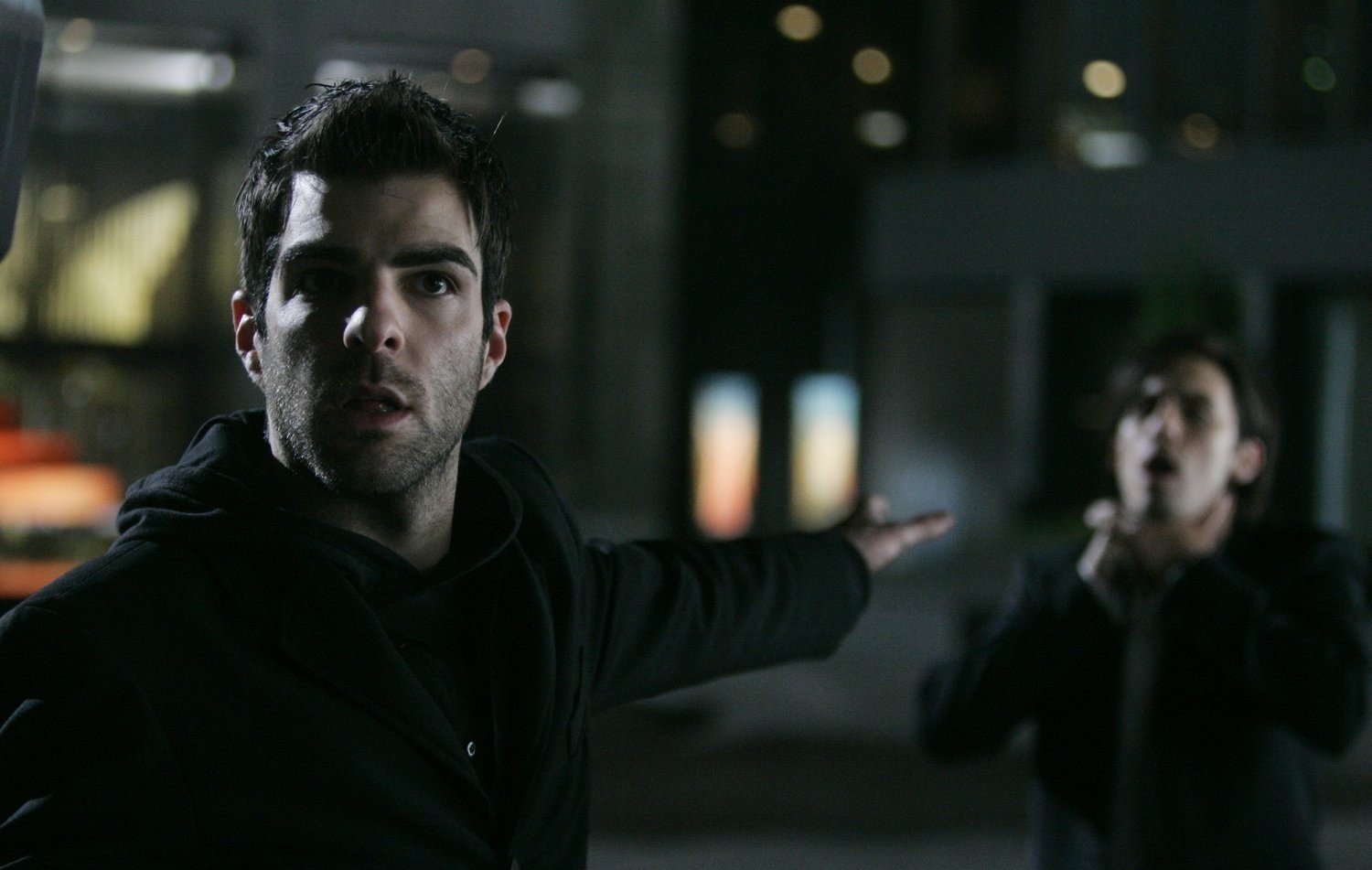
“Where does it come from?”
It’s the question that started it all: the opening line to Heroes, season one, episode one. Five volumes and a spinoff series later, it’s been almost ten years since Mohinder Suresh’s introductory voiceover was first heard, challenging the audience to consider “this quest; this need to solve life’s mysteries.” The Heroes universe has since expanded onto multiple platforms, including online ‘webisodes,’ comic books, video games, novels, and digital extensions – a legacy that, no matter the medium, continues to ask questions like, “Why are we here? What is the soul? Why do we dream?” (“Genesis”).
A common thread running through the Heroes universe is the theme of universality between human beings: we’re all connected. Small actions can have big consequences. Tim Kring (Heroes showrunner, director, writer, executive producer) stated he intended for the show to be “rare and special”: a mediation of profound questions masquerading as a sci-fi series. One of these questions is ‘what does it all mean?’ – as in, the the idea of every soul being part of a grander scheme (Kring since went on to create Touch, built upon the same thesis). At the heart of Heroes is a journey of soul-searching and discovery of a power far beyond the scope and capacity of human understanding. (Disclaimer: this article contains spoilers concerning Heroes and Heroes: Reborn.)
The Invisible Thread
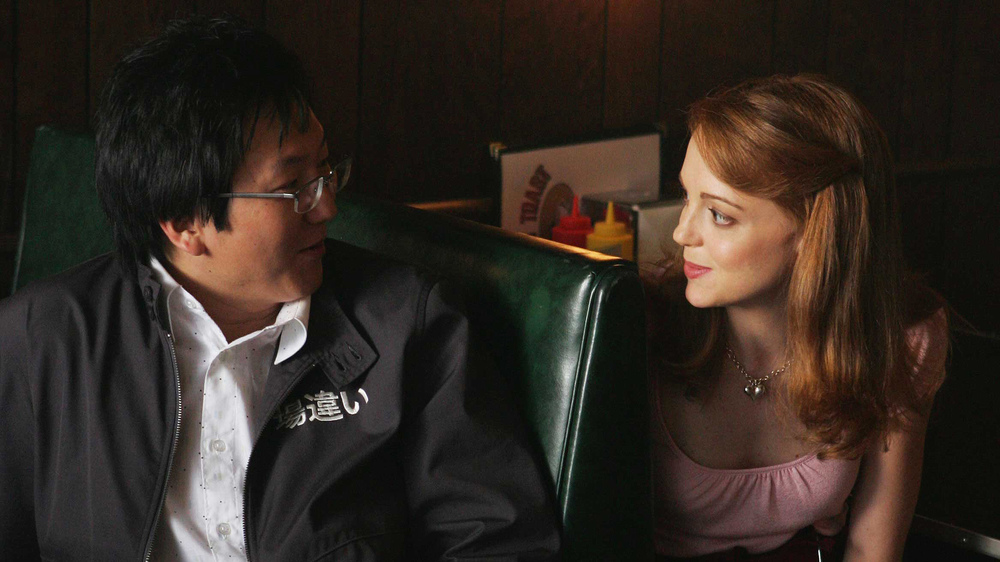
A hospice nurse. A cheerleader from Odessa. A congressional candidate. An office worker in Japan. A once-geneticist now-taxi driver. An LAPD police officer. A single mother with a psychological disorder. A painter addicted to heroin. A watchmaker. It’s a cast of people from around the world, of different ethnicities, ages, and backgrounds, all of whom are seemingly unrelated to one another – except, of course, that they’re not. The show’s iconic graphic of a solar eclipse reflects this reoccurring theme that everyone is connected. The eclipse is the catalyst for the invisible thread that begins to tie this ensemble cast together. During this global event, the Moon passes between the planet and the Sun, and for a few moments, the surface of the Earth is cast in darkness. Tim Kring said the idea for the eclipse was “that there is something larger that they’re being drawn to.”
In the premiere episode, “Genesis,” (which was originally titled “In His Own Image,” a reference to biblical scripture citing humans being made in the image of God) a montage of clips (set to the Rogue Wave song “Eyes”) is spliced together to show each of the cast members experiencing the eclipse from wherever they are in the world. It’s during the days leading up to and following this celestial phenomenon when the characters discover supernatural abilities beginning to manifest. While staring at a wall-hung analog clock, Japanese computer programmer Hiro Nakamura miraculously moves the second hand backwards once with only his mind. It doesn’t take long before he realizes he has the power to manipulate time and space. Testing the limits of super powers is only so fun without a friend to show off too. Hiro’s coworker Ando Masahashi is initially skeptical of his friend’s newfound skill, but once convinced, ultimately becomes Super Hiro’s trusty sidekick.
Hiro isn’t the only one experiencing an extraordinary change. Unbeknowesnt to them, his and Ando’s story has been chronicled in the most recent issue of the comic book series, “9th Wonders,” penned and illustrated by artist Isaac Mendez. The drug-addicted painter, with the ability to predict the future through his work, is dating an art dealer named Simone Deveaux. She’s the daughter of Charles Deveaux, one of the dying patients that Peter Patrelli cares for. The sensitive, keeps-to-himself nurse crosses paths with Mohinder Suresh, an East Indian scientist who drives a cab in New York City. In digging into his deceased father’s old research, Suresh finds he is being followed by a mysterious man with horned-rimmed glasses. This man is revealed to be the father of Claire Bennet, a highschool student who rapidly regenerates skin tissue. Her biological father, however, is Peter’s big brother Nathan, a go-getter running for congress. In secret, he becomes romantically involved with Niki Sanders, who is struggling to raise a son by herself. For extra cash, the Vegas native strips online – and is admired from all the way over in Japan by Ando Masahashi.
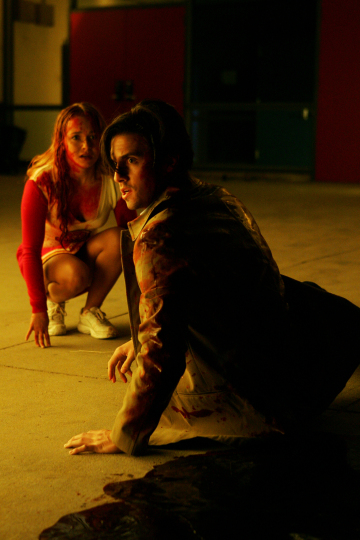
Random people, all linked to one another through seemingly insignificant connections. As their stories progress, however, their relations to one another appear less coincidental and more masterminded. In one of the opening narrations voiced by Sendhil Ramamurthy (Suresh), we are asked to consider the probability of human complexity: “There are nearly seven billion people on this planet. Each one unique, different. What are the chances of that? And why? Is it simply biology, physiology that determines this diversity?” He goes on to consider that perhaps there is something more to life than just a “collection of thoughts, memories, experiences that carve out our own special place,” but that instead there could be a “master plan that drives the randomness of creation, something unknowable that dwells in the soul, and presents each one of us with a unique set of challenges, that will help us discover who we really are” (“An Invisible Thread”).
Suresh’s monologue suggests a higher power could be at work, orchestrating the events that slowly bring these characters together, building to both a physical and spiritual convergence. During the eclipse, Peter, in the back of Mohinder’s taxi, asks his driver if he ever gets the feeling he was meant for something extraordinary. Suresh is conflicted by this notion. He’s a man of science by trade, but has a background of religious practices. His mother was a Hindu, but his father was an atheist. He wonders, following his father’s death, if we was being punished by the goddess Kali for lack of faith. This duality is intrinsic to the show. The emergence of super powers is alluded to being the result of both natural selection and God. In Volume 3, Suresh proposes that it could be biorhythms in the human body, synchronized with solar eclipses, that have activated untapped potential genes – a sudden and rapid exponential leap in evolution.
Subsequently, however, Suresh contradicts this theory with another possibility: “We all imagine ourselves the agents of our destiny, capable of determining our own fate. But have we truly any choice in when we rise or when we fall? Or does a force larger than ourselves bid us our direction? Is it evolution that takes us by the hand? Does science point our way? Or is it God who intervenes, keeping us safe?” (“Don’t Look Back”). The other reoccurring symbol, besides the eclipse, is the ‘Godsend’ sign: half a double helix (otherwise known as a strand of a DNA molecule) insignia for the two Japanese words translating to “great power.” This symbol can be spotted randomly in almost every episode as a hidden easter egg (ie. Hiro’s sword, Jessica’s tattoo, etc.). It appears to represent both science, as a diagram of genetics, and spirituality, as a metaphor for a gift from God.
Save the Cheerleader, Save the World
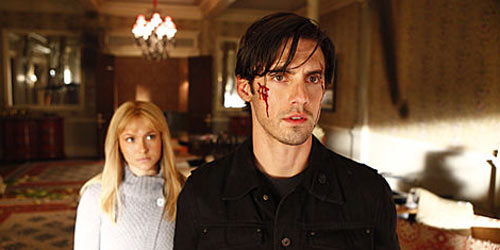
“Everything is connected. We are all connected” (Peter Patrelli, “Hiros,” Volume 1). The crossing-over of the lives of these unlikely heroes culminates into the beginning chapters of the story of how the world ended. In order to save the world, however, they must first save the cheerleader. Enter Claire Bennet: a sixteen year-old Texan who’s got everything going for her: looks, popularity, and the ability to immediately heal from any injury. A messenger from the future, in the form of an aged Hiro Nakamura, warns Peter of the state of the world after an explosion in New York City – the same impending destruction Isaac predicts in one of his paintings. Somehow, Claire is the key to the mystery of how to stop an exploding man.
He calls himself Sylar. Said to hunt down people with abilities and steal their powers, Gabriel Gray is believed by Future Hiro to be the man behind the devastation. Mohinder’s concept of a deity being the grounds for a world of super powers is interestingly matched by Gray’s evil presence. In Christian mythology, Lucifer was the arch angel held in the highest regard in Heaven, but became too proud and power-hungry and fell from glory, becoming the Devil and waging a war with God. Gabriel Gray is also destined for greatness (Kring originally wanted him to have been a priest before becoming a killer), but is never satisfied with who he was born to be. Instead, he craves power, and continuously seeks to strip the abilities of other gifted people for his own good. His personality parallels the Devil’s in that they both seek to manipulate nature and God’s creation for their own good (Sylar physically mutating his own biology to mimic other abilities). The selfish Sylar’s self-attributed title even bears resemblance to Lucifer’s second name, Satan.
With Claire’s regenerative blood, Sylar would be unstoppable, so Hiro has come back to change the course of the timeline in order to rewrite Sylar’s fate as the bringer of death. However, Hiro’s prophecy doesn’t seem to line up with the events that ultimately unfold. Curiously, it’s Peter who ends up being the nuclear man, and Sylar journeys down a path of ultimate redemption. Further, the jeopardy of the entire planet was never actually hanging in the balance. To be specific, only 0.07% (as Linderman so poignantly puts it) of the global population would have been affected by the devastation, which begs the question: what does “save the cheerleader, save the world” actually mean?
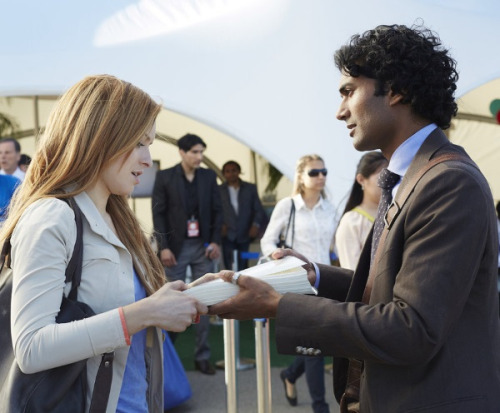
“Lately I have been plagued with dreams: fire raining down, blood everywhere, and the twins saving the world under a clock tower in Odessa. It’s hands stuck at 11:53. . . . It’s the way the world ends, Noah. Under a burning Texas sky” (“June 13th Part Two”). Angela Patrelli’s vision of the apocalypse predicts a coronal mass ejection from the Sun that will eventually result in a human extinction level event. The countdown to this “HELE.” serves as the story basis for Heroes’ follow-up series, Heroes: Reborn, in which Noah “HRG” Bennet resurfaces to find out what happened to his daughter after suffering from amnesia. His investigation leads him into the middle of a mystery surrounding a terrorist attack that was supposedly orchestrated by “Evos.”
A man who needs to remember. A high school student without a father. A Japanese woman without a past. A tormented husband. A vengeful wife. An online gamer. A girl on the run. An undeserving war hero. A conspiracy theorist. A rape victim. Random people, all linked to one another through seemingly insignificant connections. Destiny ties every person together; an invisible thread running through the generations. In the episode, “The Needs of Many,” the Reborn cast all experience a global event; this time, with the Earth’s magnetic poles reversing in the days leading up to the HELE, the northern lights appear closest to the prime meridian than ever before, causing everyone to, just for a moment, stop and witness something happening together at the exact same time.
History repeats itself. Everything happens for a reason. And stepping on a butterfly can have extraordinary repercussions. Changing the timeline even in the slightest way can influence things in major ways. Angela Patrelli puts it like this: “You step on a butterfly today; three years from now a million people are wiped out” (“The Butterfly Effect”). Heroes: Reborn is one of the ripples resulting from saving the cheerleader. Picking up five years after the end of the original run, the show finds one Tommy Clark, a sixteen year-old with the power of teleportation, on the other side of the world from Malina, another teenaged Evo who’s been raised in isolation in the arctic. Unbeknownst to these two extraordinary individuals, they are twins . . . and only one year old.
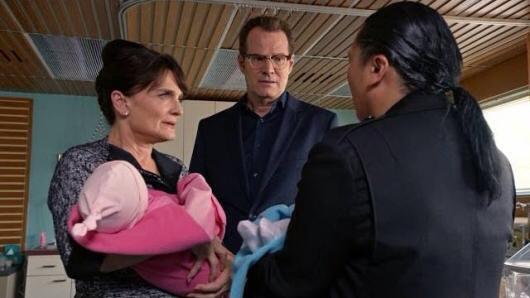
Claire was pregnant. Her children: Nathan and Malina Bennet. Their destiny: coming together to save the world. When joined together, the twins’ combined power needs to be stabilized by an alternative body to channel the energy; a volunteer willing to sacrifice themself for the greater good. Noah Bennet becomes this person. “Save you, save the world,” Tommy tells the cheerleader’s father. Sound familiar? HRG is rescued from certain death only to be killed for a greater purpose. Fate brings Noah, Malina, and Tommy together, starting from a prophecy about a cheerleader, and ending in the story of how the world almost ended.
Whether it was something or someone, an inexplicable presence is clearly at work, carefully overseeing the ongoing culmination of the heroes, bringing them together and calling them to greatness. Hiro tries forty-seven times to try to prevent a coworker from committing suicide by going back in time to change history. None of the attempts are successful. It is only when Hiro goes to speak with him before jumping in the present when he is able to get through and save the man’s life. Even the most powerful Evos are servents to the authority of Fate. The beauty of the mystery is that it can never be solved; Heroes reflects life itself in its ambiguity and contentment with not being able to figure everything out.
“The sun rises on a new dawn, yet few of us realize the debt we owe to those responsible for this, to those who dwell among us, anonymous, seemingly ordinary, who destiny brought together to repair, to heal, to save us from ourselves, and they’re still out there among us, in the shadows, in the light, we pass them on the street without a glance, never suspecting, never knowing. Do they even know yet? That they are bound together by a common purpose? A glaring reality, to be extraordinary, and when destiny does anoint them, how do they hide from it? How long can they dwell in the shadows before either fate or their own flawed humanity draws them out into the light again?” – Mohinder Surresh, “Four Months Later,” Volume 2.
What do you think? Leave a comment.











I hope Netflix gets in touch with Tim or vice versa and talks about a season 2. That would be a great place for the show, not having to rely on on air TV ratings it will give the show a solid platform.
Yeah I hope so too. I could see something like that happening somewhere down the road.
I was a MASSIVE fan of Heroes throughout its original run. I thoroughly enjoyed all 4 seasons and was still watching it religiously after 90% of people had jumped ship by the end of Season 4. I picked up & read every little bit of information that would add to the lore & immersion of the Heroes universe & just simply loved the whole concept. So when Reborn was announced I was overwhelmed with excitement, but at the same time I was very, very cautious as to how and if they were going to be able pull it off, as historically reboots are often complete flops.
The show failed in pretty much every category it could fail in. The writing was awful. The actors were poorly directed. The script was shocking. The pacing was ludicrous.
I agree. As much as I absolutely adore the Heroes Universe and the original characters, Reborn has to be the worst high-budget network show I have watched in my life.
Heroes really is one of those “once-a-generation” genre shows that initially had everything going for it.
Yeah no kidding! It’s a unique series for sure.
Being a big science-fiction fan and common Internet-user I’d heard about Heroes from various places and I knew the general gist but never really had the opportunity to watch it.
If you have Netflix, the original four seasons are available for streaming. I’d really recommend checking them out, especially being a sci-if fan!
Kudos, Mr. Kring!
What I love most is that the story plays a lot with destiny and conditions, but also is quite clear about the fact that everyone has choices at any time in life.
I know hey? There’s a lot of beautiful stuff going on
Thank you Heroes!
Love this show watched all the episodes, it’s best show I’ve seen so far.
Apparently the show was going to have a new cast each season like they are doing with True Detective, but that idea was scrapped by NBC due to how big the show got in Season 1. Looking back on it i wonder how the series would’ve turned out if they had gone that route. The show might now have fallen off like it did.
A series that began so promising and ended so badly script.
I love this show and the undertones of philosophy and purpose in life, discovering oneself, and creating an identity.
Excellent Show. Ahead of its time.
Great analysis, but Heroes is a lot like Icarus: the fabled legend of a boy who grew wings, but stared too long into the sun and ended up falling from the heavens.
Season one was awesome!
Heroes started off great with a lot of potential, but as the seasons progressed it lost its way. I find that the episode “Villains” in Season 3 is a great place where we see the manifestations of much of what went wrong with the flow of the shows story lines and its writing.
Excellent Article. Heros is one of the many well-written Tv shows that I didn’t appreciate when I first watched it. I took the show’s slow and complex mystery for granted and watched it mainly for the superpowers until I fell out of the habit of watching it at night. I think I might revisit it.
Thanks for the feedback! I can relate. The first time I watched Heroes, I didn’t fully understand the greatness of the first season. It was only after I watched it back with a friend a second time that I started to realize how special it was. It’s worth watching again!
Heroes was and is by all accounts one of the greatest television shows that will ever have been made, with the exception perhaps of season 4. Recently the Netflix produced show entitled Sens8 rediscovered a legacy left behind by Heroes, and took over the mantle as the show with the group of weird people linked by destiny.
What both of these shows try and tell us is that these people are linked through destiny, fate, evolution, or God, but it is the first steps taken by Peter and Hiro to “save the cheerleader, to save the world.” As with the characters in Sens8, they make the choice to change the world, to do what they feel is right. So they both pose the question of destiny and intertwined fates while boasting a cast of characters who jump right into the middle of everything rather than stepping away and finding a quiet corner to hide.
From what I have heard of this show, it was a good premise that had a lot of potential that was wasted.